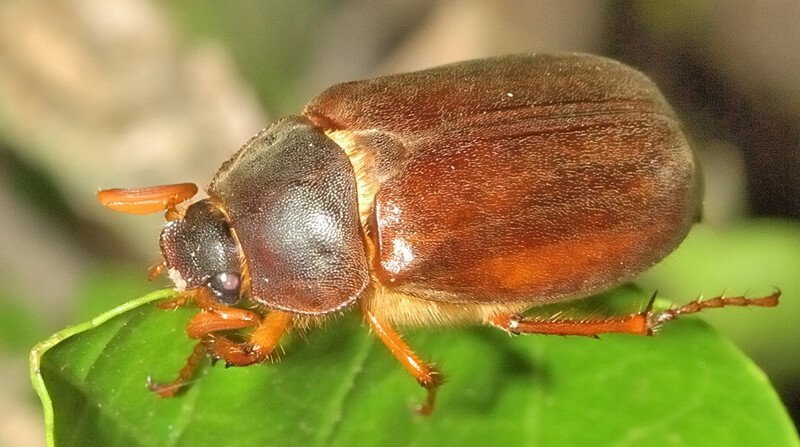
Beetles are nocturnal beetles that feed on leaves. So far, nothing to worry about. Except that they are a real terror in the larval or grub stage, because they eat all the roots they find. So they do real damage! Follow these 5 tips we unearthed to eradicate them!
Cockchafers, also known as May bugs or June bugs, are a type of beetle that can be a nuisance in gardens and lawns.
Here are five natural tips to help manage and reduce cockchafer populations:
- Beneficial Nematodes:
- Beneficial nematodes are microscopic roundworms that are natural predators of many soil-dwelling pests, including cockchafers. You can purchase nematodes from garden supply stores. Follow the instructions on the package for application. Usually, you mix them with water and apply them to the soil.
- Birds and Wildlife:
- Attract birds and other wildlife to your garden. Birds, such as crows and magpies, are known to feed on cockchafers. Creating a bird-friendly environment can help control cockchafer populations naturally.
- Milky Spore Disease:
- Milky spore disease is a bacterium that specifically targets Japanese beetle larvae, which are closely related to cockchafers. While it may not be as effective against cockchafers, it can help reduce beetle populations. Follow the product instructions for application.
- Neem Oil:
- Neem oil is a natural pesticide that can deter and disrupt the life cycle of various garden pests, including cockchafers. Mix neem oil with water and apply it to the soil where cockchafers are active.
- Crop Rotation and Garden Cleanup:
- Practice crop rotation in your garden, which can help disrupt the life cycle of pests like cockchafers. Additionally, remove thatch and debris from your lawn and garden, as these can provide hiding places for cockchafer larvae.

